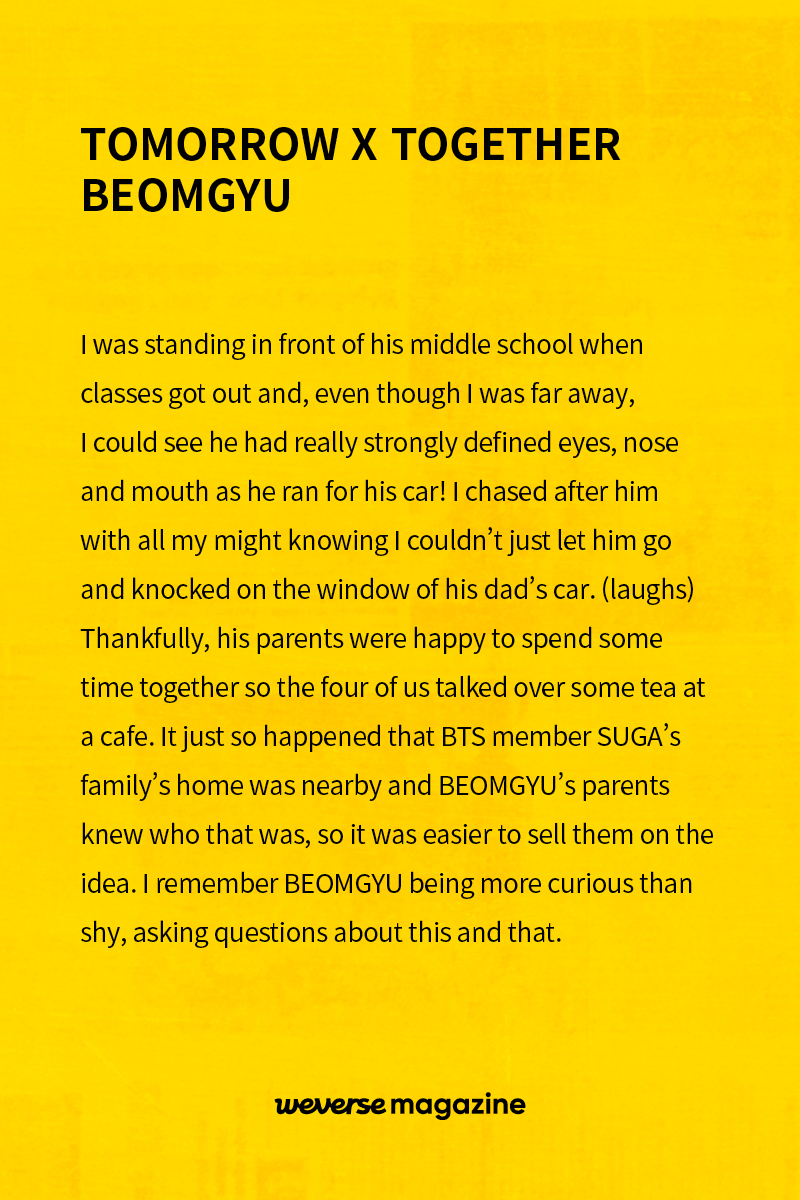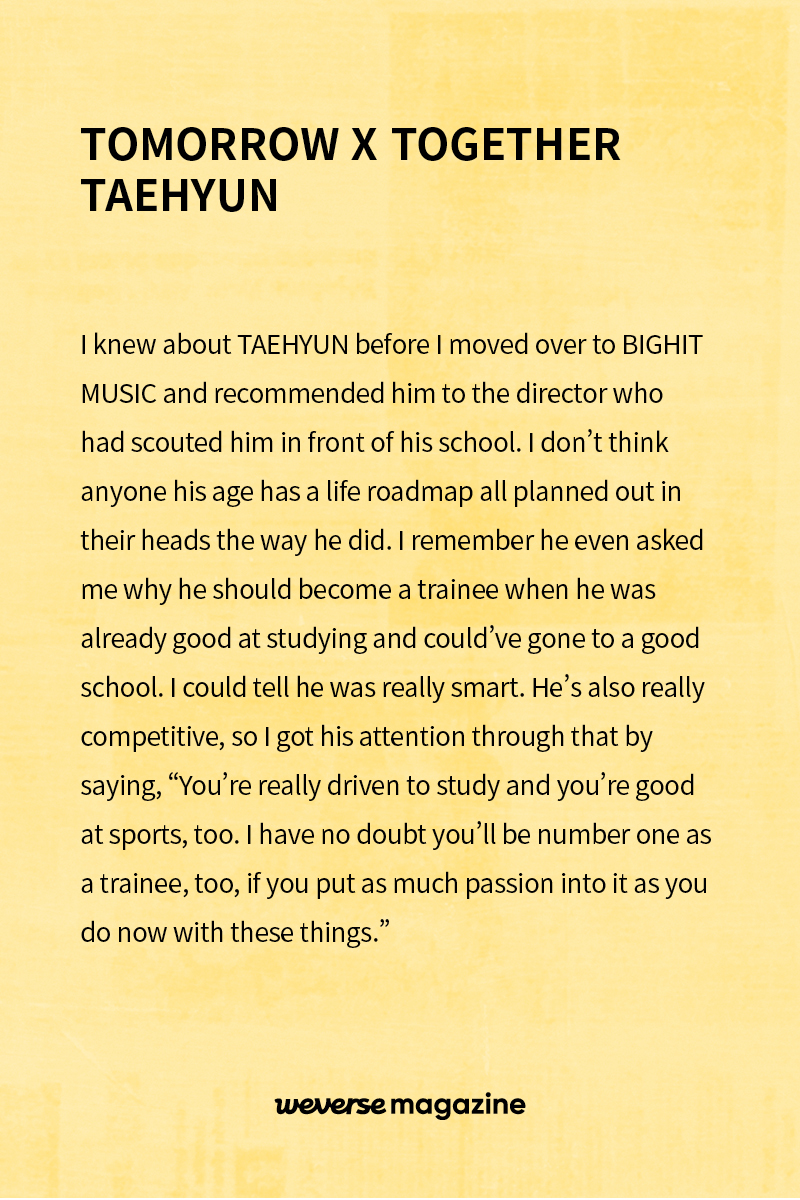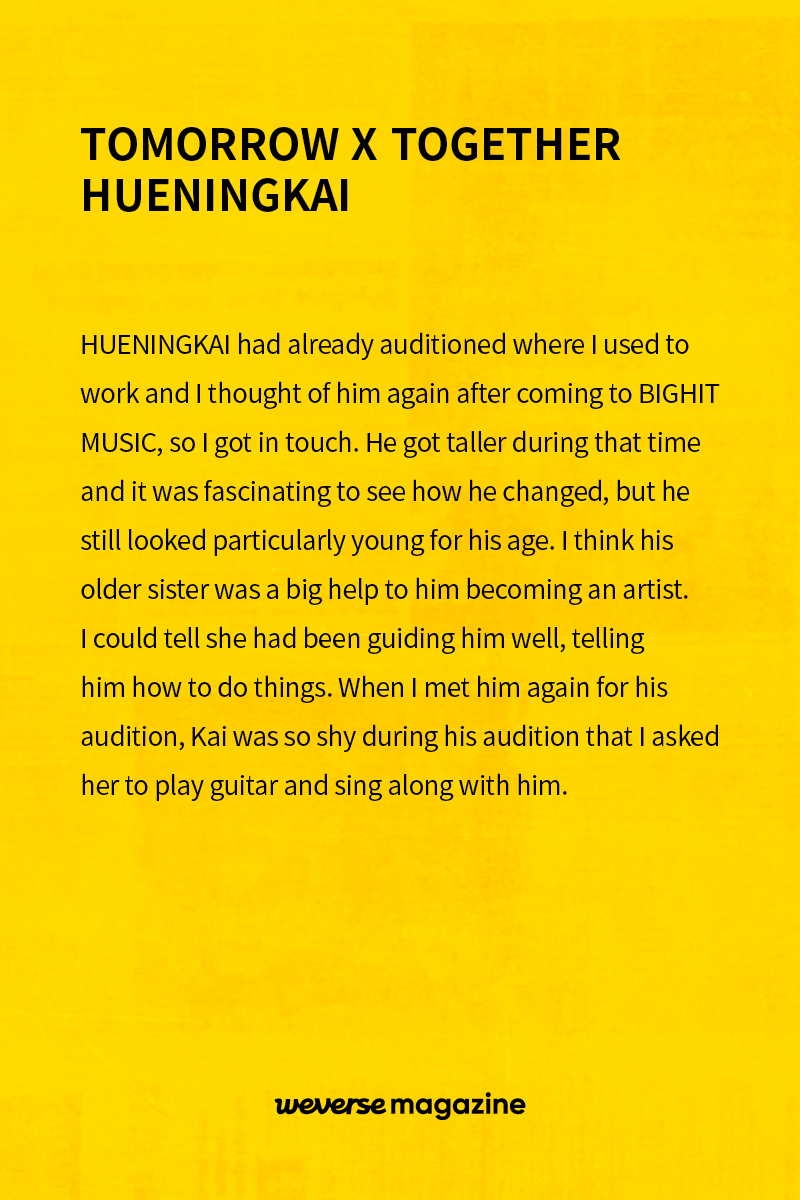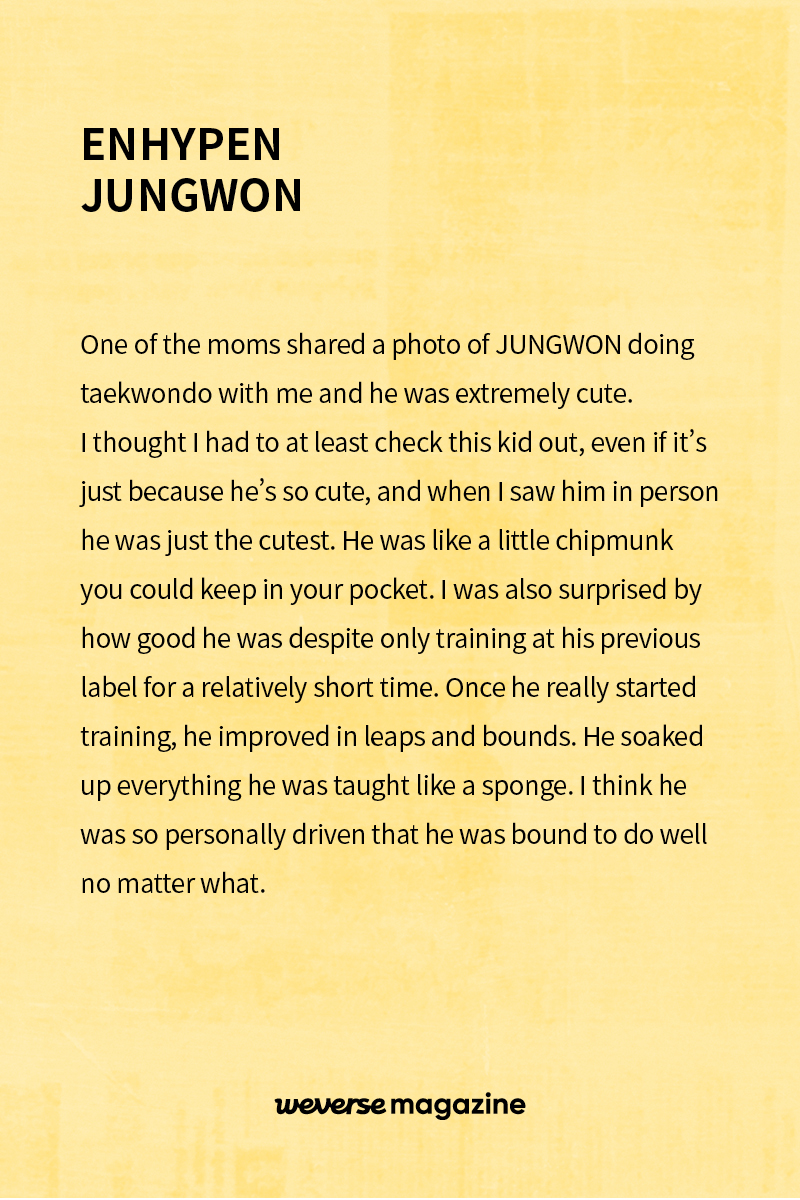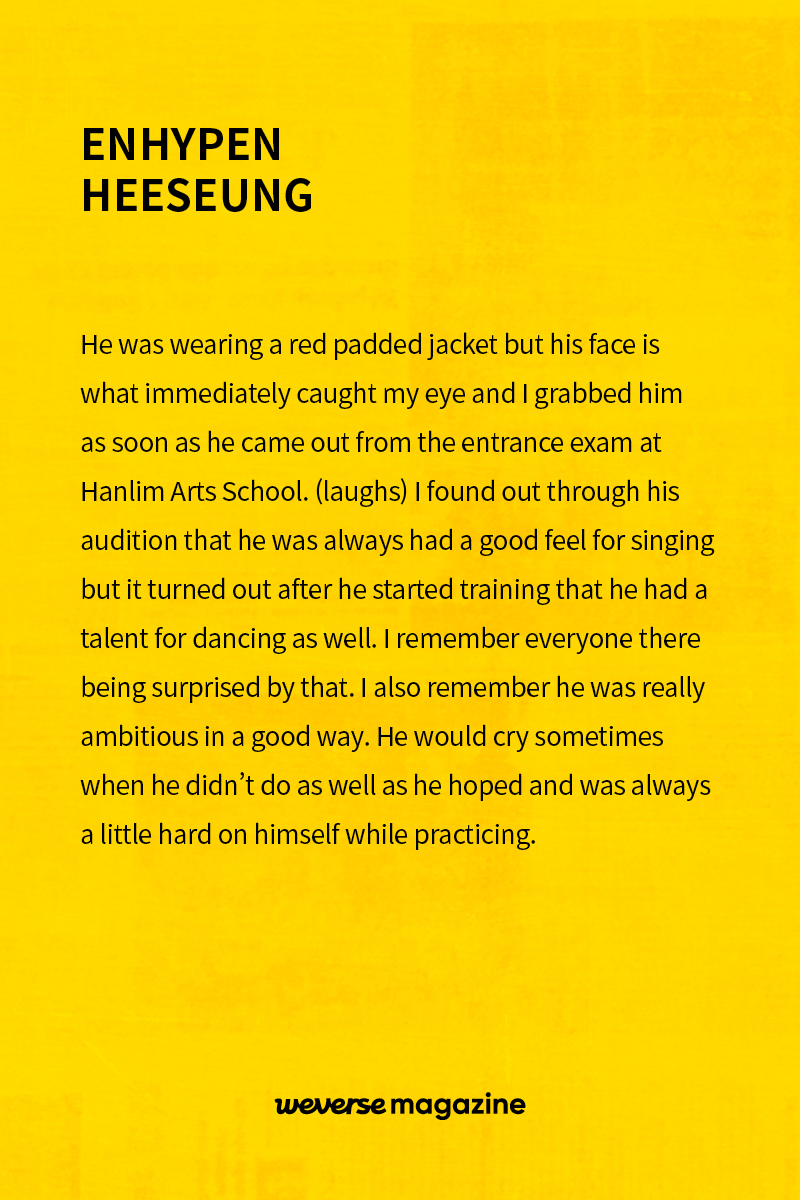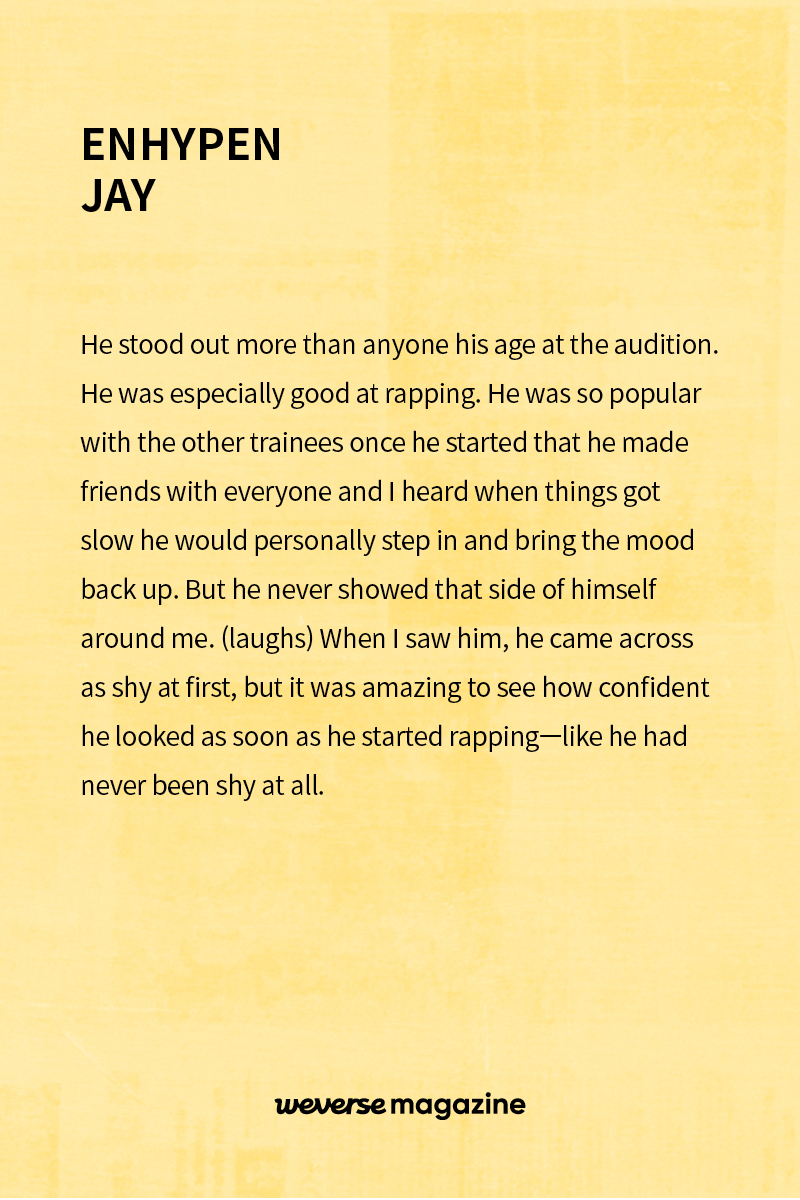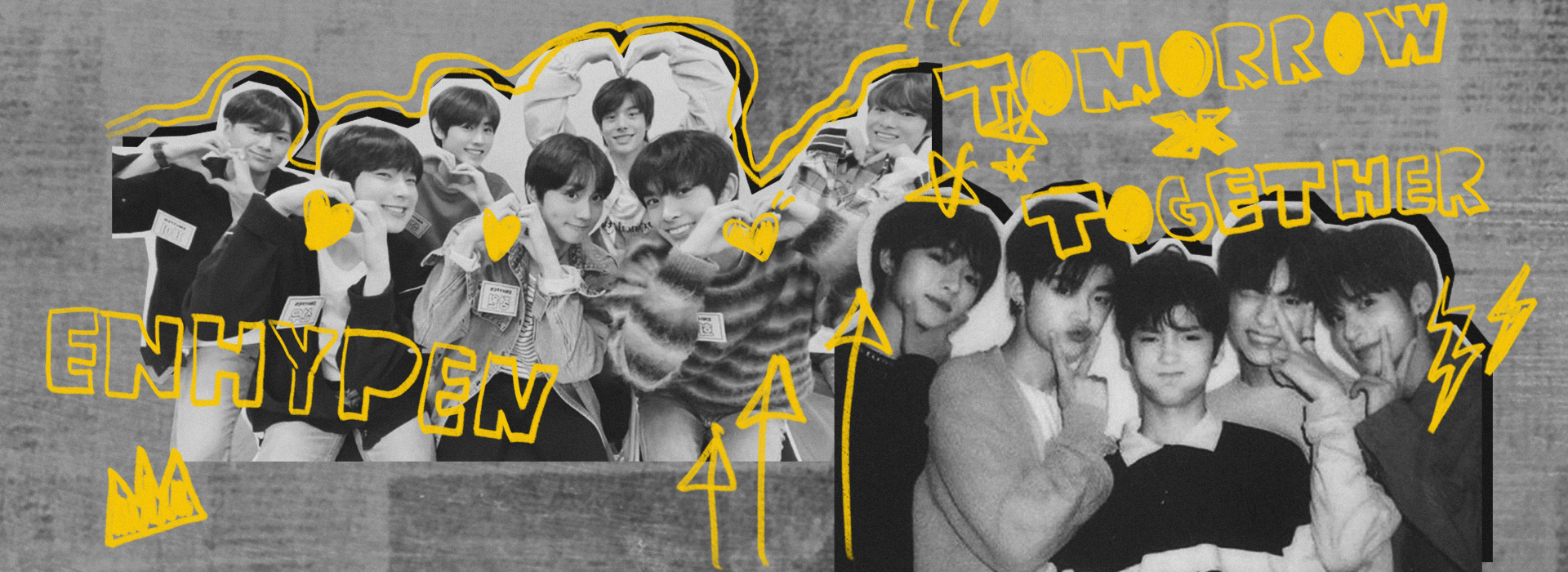
When TOMORROW X TOGETHER member TAEHYUN talked about his own casting experience in the group’s promotional video for BIGHIT MUSIC NEW BOY GROUP AUDITION, he said he chose BIGHIT MUSIC over all the other labels that were trying to court him because he “felt certain that I would receive wholehearted support.” That was after the casting team spent a lot of time and effort to persuade the future idol at a point when he was refusing to become an idol trainee. Although he didn’t scout TAEHYUN personally, Hong was the one who first told TAEHYUN’s scout about him. “TAEHYUN’s so shrewd that he already had his whole life planned out despite being so young,” Hong said. “He was really passionate about his studies and was determined to get into a good school. He was mature and realistic, so we didn’t feed him an idealized version—we told him everything straight and we were realistic about it.” SUNGHOON was making a name for himself as a figure skater before he eventually debuted with ENHYPEN—again the result of Hong “pouring everything I had into” getting the future idol on board. Hong spent a significant amount of time talking with SUNGHOON’s parents, trying to persuade them with various possibilities including that he take on his careers in sports and music simultaneously. “In the end,” Hong said, casting is all about “sincerity.” Casting directors must come prepared with a full vision for their hopefuls and concrete steps the trainees-to-be can take to fulfill it, and be confident in their decisions at the same time. It’s that confidence that led him to persuading SUNGHOON, who already showed many different talents, to try out to be an idol. “I figured he would pick up dance quick thanks to all his experience figure skating and, seeing as he was an athlete, I was confident he would be responsible and competitive. People with that kind of ambition always end up doing well.” Hong’s confidence went on to completely reshape someone’s life.
Back when they were still known as Big Hit Entertainment, the label had just one team taking on a new artist’s every need—from casting all the way to training and management. Now, BIGHIT MUSIC has a separate, specialized team for every concern, and they continue to iterate on their casting process to this day. According to Hong, the BIGHIT MUSIC Casting team continuously researches new methods on the best paths to cast artists, evaluation standards that are in line with the latest trends and approaches to promotion and scouting in addition to actually casting group members. “For casting, you can’t get stuck in an outdated mindset and you have to be quicker than anyone at picking up, and then keeping up with, new trends and especially those that are unique to and popular with teens,” Hong explained. That’s why the casting team “goes out and interviews teens directly about what they like to do, their patterns, what they’re interested in and more,” developing new avenues for scouting based on the information they amass. “Using apps like ZEPETO and Bondee that are popular with teens” is something else they consider when making contact. “We take many different possible approaches to casting, researching the trends of today and doing market research like plotting out the appearances of idols by generation and the characteristics of each country and making guidelines for that.” Hong said that casting is “mostly intuition- and feeling-dependent” and it isn’t absolutely required that they make concrete, systematic decisions for such a subjective and abstract job. Still, the reason for taking the approaches they do is clear. “If it could be in any way helpful, we just try it. We’re always eager to discover people’s latent potential and help them explore their dreams of becoming an artist. That’s also why we work hard to cultivate casting professionals by establishing a system for casting and improving on that process.”
Last year on Teachers’ Day, JUNGWON expressed his gratitude toward Hong on the EBS radio show Listen, calling Hong a memorable mentor and explaining how he spared no effort giving advice and encouragement from the time JUNGWON was casted to the day he became an artist. When artists he casted reach out from time to time to tell him they’ll never forget his efforts, Hong said, “any sense of feeling tired or drained goes right out the window and I think about how I made the right choice getting into this job.” But for anyone working in the field, that same sense of joy is accompanied by an equally serious sense of responsibility. “I used to go full speed, fearlessly, into casting, but since then I’ve necessarily started to think things through a little bit more and be more cautious,” Hong said. “My decisions change the daily and long-term lives of countless people.” Not only does the decision to cast someone in the role of idol have a profound impact on that person’s teens and 20s, but that one person in turn will have an influence on innumerable others. That’s why happiness for casting directors like Hong is their discovered trainee blooming into an artist. Hong and others can also rest assured they made the right choice when they see those artists grow. “I’m always rooting for TOMORROW X TOGETHER and ENHYPEN,” Hong said. “I feel as proud as a dad. When the members I casted myself and continue to cherish—people I realized were the one—continue to grow as artists and I see how much they’re loved by people …Is there any feeling in the world better than that?”
Unauthorized reproduction and distribution prohibited.
